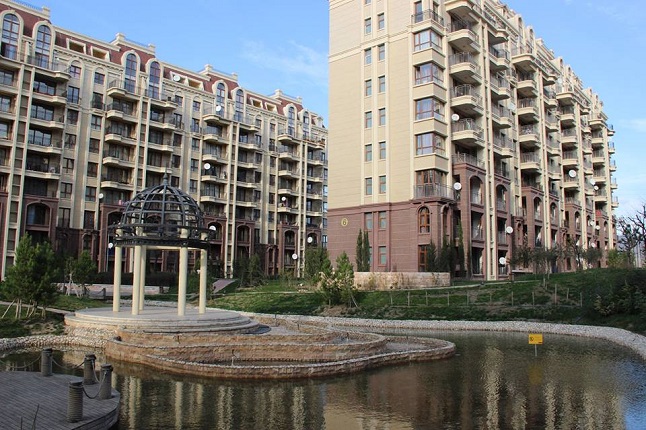In the 1920s, cooperatives for consolidation of builders’ resources were created to develop home construction and operate and maintain existing dwellings in Georgia. After obtaining independence in 1991, mass privatization gave residents their homes to own and manage privately. As a result, owners became responsible for building maintenance. The “Homeowners’ Association” (“HOA”) law in Georgia’s Civil Code, adopted in 2007, provides for common property management. Within the project HOME, Technical Advisory Centres (TACs) have been established in the three the most populous cities of Georgia: Batumi, Kutaisi, and Tbilisi. They provide technical and legal assistance through regular trainings and individual consultations. Successful solution of issues discussed by HOAs is directly linked to involvement of its Chairperson and members.
The tasks of the HOA in Georgia are maintenance, exploitation, and development of common property. The HOA is not a legal entity; it is a union of owners of residential and non-residential spaces, including commercial spaces, in a multi-unit building or an individual property object thatexists on two or more neighboring plots of land. The HOAis not the result of free will of its members. The law establishes the HOA if there is more than one homeowner (individual or legal entity) in a multi-unit building. HOA management is performed by a Chairperson, who is chosen by members of the HOA, and might be a member of the HOA or an invited ruler. Individual owners benefit financially if the HOA obtains income by transferring the right to use or sell common property of the HOA, including roofs, basements, and plots of land. Membership fees are set by the HOA to pay for maintenance and development of common property. An HOA has the right to open a bank account and is responsible for any debt. Bank accounts ensure more transparency when collecting membership fees and incurring expenses. Decision making requires 2/3 of the members in case of general issues and consent of all members if more substantial issues are reviewed.
Despite the fact that the Law on Homeowners Association is a step forward, there still remain some challenges that hinder to its proper implementation in practice. First of all, this is the non-payment of membership fees by homeowners that could be solved with raising homeowners’ awareness of their rights and responsibilities against common property, and with putting in practice compulsory enforcement measures. Non-attendance at general meetings is another issue. According to German Expert on Housing Thomas Janicki, the major problem of housing management in the Post-Soviet area was caused by the privatization that did not include raising awareness of the new homeowners about their responsibilities:
“the privatization of the dwellings [in the Post-Soviet countries]did not entail a clear financial responsibility of the new owners for the common property in the multi-family apartment buildings. Instead, the new owners were often reassured that the public authorities would finance the maintenance of the apartments – a commitment that remained largely unmet”.
The high number of members required to vote causes adoption of many issues to be delayed when all members or 2/3 are not present. This situation contributes to the illegal practice of falsification of signatures. Reducing the number of members required to make decisions could be reduced to a simple majority for routine decisions, and to 2/3 for major decisions. Criteria should be defined for selecting qualified HOA Chairpersons. Priorities of Chairpersons need to be de-politicization, transparency, effective communication, and a problem-solving orientation. It would be helpful if HOA Chairpersons received training on technical issues, housing management, energy efficiency, environment without barriers, and modern innovations of building maintenance. Unfortunately at the given stage, it is impossible for the majority of HOAs to cover repairs with their own funds. Registration of a HOA at a local municipality enables it to take part in various co-funded programs for renovation, replacement of the elevator, etc., and thus it should be increasingly encouraged. The criteria for this type of support must be improved in order to fund residential buildings with the most urgent needs. Another step to facilitate HOA functioning in Georgia could be creation of a unified web database of HOAs to ensure transparency of housing management projects and public involvement. In addition to this, national and international share their experiences for improving housing management in the framework of “HOME”: The way forward for reforms in the housing sector: empowering grass-root homeowners associations in Azerbaijan, Belarus, Georgia, Moldova and Ukraine” project. The project is implemented by German NGO “The Housing Initiative for Eastern Europe (IWO) e.V.” and co-funded by the EU. The three-year project aims, through the establishment of 10 Technical Advisory Centres (TACs), to improve housing management and to promote energy efficiency refurbishment of residential buildings in the partner countries, including Georgia. The project partners in Georgia hope that the project will contribute to the active dialogue involving civic, academic, and non-governmental sectors in order to underpin the successful reforms and changes in the housing sector.
Co-authors /Organizations responsible for preparation of the article:
Nino Khukhua – Local Democracy Agency Georgia;
Dinara Jalaghonia- Charity Humanitarian centre “Abkhazeti”;
Natia Apkhazava – Civil Society Institute.
The information and views set out in this article are those of the authors and do not necessarily reflect the official opinion of the European Union. The project is co-financed by the European Union




